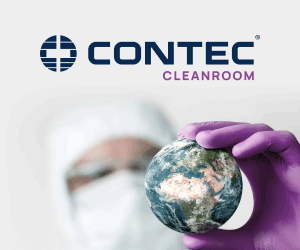CDMOs are unable to develop products capable of working successfully in clinical testing or which are economically viable. The warning comes as more and more full service CDMOs are investing in conjugation and antibody drug conjugates (ADC) facilities.
“There is a major challenge in the ADC pipeline that conventional manufacturers have not addressed and which pharma companies are obliged to work around. The ultimate problem is that you have a candidate that may look promising but in practice it cannot be commercialised — unless aggregation control systems are put in place,” said Charlie Johnson, CEO at ADC Bio.
“We are seeing a great deal of excitement from pharma companies seeking to invest in ADC therapeutics. But applying conventional manufacturing techniques will see the drugs fail or endure very long periods in development. From the vendor side, there is considerable investment across the industry in facilities — but that alone will not give you the capabilities to commercialise optimal ADC therapeutics and that is ultimately a failure to patients desperately in need of new life-saving therapies.”
This is especially the case with best in class ADCs — predominantly incorporating pyrrolobenzodiazepine or duocarmycin payloads. These ADCs are hugely problematic to develop, primarily because these payloads are very hydrophobic and despite only comprising 2% of the ADC, they dramatically effect the propensity to aggregate.
Consequently, effective aggregation control solutions are now critical — without which such ADCs can not be manufactured.
Control of aggregation can be achieved by physically segregating antibodies from eachother during the critical conjugation steps. ADC Bio has developed its proprietary lock-release technology in the last six years.
The technology platform allows immobilisation of antibodies onto a solid-phase support, thereby segregating them and preventing aggregation during the critical conjugation steps.
Following conjugation to payload, the ADCs are subsequently released into an optimal formulation containing stabilising excipients that suppress aggregation.
The ADC pipeline faces a quality issue bottleneck which, if not addressed, will prevent drugs reaching the market. There is an urgent need to adopt techniques that prevent the formation of soluble high-molecular weight (HMG) aggregate in ADCs — thereby preventing severe adverse immune responses in patients that renders drugs unusable.
Turning to the early stages of ADC development, scientists require much greater certainty that readouts from initial in vitro panels are accurate and reliably predicative of in vivo efficacy and safety.
Consequently, technology is needed that guarantees that ADCs are free of residuals, in particular free cytotoxic payloads and solvents — each of which impact negatively on in vitro assays.
The only commercially available system that controls aggregation at source and that is scaleable and capable of meeting the regulatory requirements of good manufacturing practice (GMP) required to produce materials for use in human clinical trials is the ADC Biotechnology lock-release platform — a system that guarantees the consistent production of high quality, purified bulk drug substance.
Lock-release will ultimately provide better patient outcomes by allowing tumour-biology to select the best available payloads and ADC formats rather than allowing manufacturability to determine what products are possible.




